September 2024
Safer Havens: Better Protection of Venezuelans in Colombia from Identity-Based Violence
This webinar presents a policy report developed during the Safer Havens workshop, the first in a series of three planned conferences held in countries coping with large displaced populations. This long-term research, advocacy and convening project aims to identify better practices for coordination between state and civil society organizations in global atrocity prevention.
Panelists:
Eugenia Carbone, Director of the Latin American Program of the Auschwitz Institute for the Prevention
of Genocide and Mass Atrocities
Ana María Díez, President of Coalition for Venezuela
Maritza Mosquera Palacios, Secretary of Social Integration of the Mayor's Office of Bogotá
Max Pensky, Co-Director of I-GMAP
October 2022
Human Rights and Atrocity Risk in Afghanistan
The Taliban, as the de facto authority of Afghanistan, have systematically carried out Human Rights violations and atrocities with impunity. Significant issues include: unlawful and extrajudicial revenge killings, forced disappearances, torture, arbitrary detention, unlawful invasion of privacy (such as search of smartphones and houses), summary execution of prisoners of war, and forced displacements. This webinar reflects on these atrocities, victimization patterns, and other violations by non-state actors in Afghanistan. The panelists will have a conversation about the atrocities and how they would like to see the international community respond.
Panelists:
Bilal Sarwary is an accomplished journalist with 20 years experience reporting on Afghanistan for major international news outlets, including BBC, Al Jazeera, CNN, NPR, and ABC. For the past decade, he worked as an independent journalist, often conducting live and pre-recorded interviews for daily news programs around the world. In 2010, Sarwary received a Bachelor of Arts from Middlebury College as an Independent Scholar, specializing in the central linkages between terrorism, warfare, and narcotics.
Munazza Ebtikar is a doctoral student at St John's College, University of Oxford, where she is completing her thesis on war and memory in Afghanistan. She holds an MPhil from Wolfson College, University of Oxford (2017), and completed her undergraduate education from UC Berkeley (2015). Ebtikar is a recipient of numerous grants and awards, she has published and presented in academic and non academic platforms and works as an international consultant for various research and policy institutions.
Roya Musawi is an Afghan journalist, public communicator, and writer with extensive experience in strategic communication, digital engagement, content creation for different digital platforms, launching advocacy campaigns, and public relations. She has served in different national and international media and organizations reporting on human rights, women’s rights, and gender equality. Recently, Musawi has started interviewing former Afghanistan National and Defense Forces (ANDSF) members who faced many challenges like revenge and atrocities by the Taliban fighters and have since left Afghanistan.
Ambassador Nasir Ahmad Andisha is a career diplomat and academic. He was Deputy Foreign Minister of Afghanistan from 2015-2019, Permanent Representative of Afghanistan to the UN in Geneva and served as the Vice President of the Human Rights Council (2020). He received a doctoral degree in diplomatic studies from the Australian National University in 2015. Andisha was a Fulbright fellow at the Bush School of Government in Texas A&M University. He worked with the International Committee of Red Cross (ICRC) as a field officer and taught international relations at the Institute of Diplomacy of the Ministry of Foreign Affairs of Afghanistan and Al-Beroni University in Kapisa Province, Afghanistan.
February 2022
Book Launch/Panel Discussion of Kerry Whigham's Resonant Violence: Affect, Memory and Activism in Post-Genocide Societies
I-GMAP hosted a panel discussion marking the launch of the new book by Kerry Whigham, Assistant Professor of Genocide and Mass Atrocity Prevention at I-GMAP, Resonant Violence: Affect, Memory and Activism in Post-Genocide Societies. Our two distinguished panelists and Prof. Whigham discussed the new book and took questions from the online audience.
Panelists:
Bridget Conley is associate professor of research and research director at the World Peace Foundation. Her specializations include mass atrocities, genocide, museums, and memorialization. Before joining the WPF, she served as research director for the U.S. Holocaust Memorial Museum’s Committee on Conscience, where she helped establish the Museum’s program on contemporary genocide. Over her ten years at the Museum, she led many of the Museum’s signature projects on genocide, including case study and issue analysis, educational programs, exhibitions, and its podcast series, Voices on Genocide Prevention, which she hosted from 2008-2011. She received a Ph.D. in Comparative Literature from Binghamton University in 2001.
Ernesto Verdeja earned his Ph.D. and M.A. in political science (political theory) from the New School for Social Research in New York City. His research has focused on large-scale political violence (genocide, war crimes, crimes against humanity), transitional justice, forgiveness and reconciliation, and trials, truth commissions, apologies, and reparations. Other interests include contemporary political theory, particularly democratic and critical theory, the Frankfurt School, and feminism.
December 2021
Afghan Perspectives on Risk and Resilience Under Taliban Rule
I-GMAP had an opportunity to learn from four Afghans in conversation as they deconstructed the dominant narratives surrounding the Taliban seizure of power and help us better appreciate the complexities of the current context. Among the topics discussed were issues related to education and other rights for women and girls, governing capacity and stability, and how to support organic development of a culture of human rights and the values of social justice. The discussion was framed within the context of evaluating atrocity risk factors and opportunities to promote resilience. Attendees had an opportunity to participate in a Q&A session toward the end of the webinar.
To minimize potential harm to the families and colleagues of the participants, this event was not recorded or made available apart from the live webinar.
Panelists:
Metra Mehran is a young social entrepreneur with a particular interest in women’s empowerment and education. She is a Fulbright scholar, currently working with Women Scholarship Endowment Program to provide scholarships for women to pursue their education in STEM majors. She is also a fellow with the National Center for Dialogue and Peace, where she is focused on encouraging intergenerational exchange and uniting different points of views (urban and rural, young and old) for sustainable peace.
Shukria Dellawar, is Friends Committee on National Legislation's (FCNL) Legislative Associate for the Prevention of Violent Conflict and the Coordinator of the Prevention and Protection Working Group. She has served as a peace and security expert, human rights advocate, and a gender specialist. Over the course of the last decade, Shukria has worked in various capacities to maintain focus on peace-building efforts in Afghanistan. She is a Senior Fellow with the Center for International Policy (CIP). She served as the Director of the Afghanistan Study group with CIP in 2012, working closely with policy-makers in Washington DC to address insecurity, corruption, and human rights violations.
Waheed Ahmad joins I-GMAP as the first Charles E. Scheidt Resident Practitioner for the period of November 2021 through April 2022. Early in his career, he worked in the Ministry of Interior and in a Directorate of Local Governance in Afghanistan. He came to Binghamton University as a Fulbright Scholar in 2016, and graduated with a Master of Public Administration (MPA) degree in 2018. After graduation, he returned to Afghanistan and obtained a position in the Office of the National Security Council (ONSC). He started as a Director of National Intelligence Coordination (2018-2020) and from January 2020 until the Taliban forcibly took control in August 2021, he was the Senior Strategic Director/Advisor in the ONSC within President Ashraf Ghani’s administration.
October 2021
Investigative Journalism at the Atrocity Frontline: A Conversation with Nick Turse and Maria Ressa
I-GMAP Co-Directors Max Pensky and Nadia Rubaii talk with two investigative reporters on the atrocity frontlines: American reporter and New York Times best selling author Nick Turse, and acclaimed Philippine journalist, co-founder of the online news site Rappler, and 2021 Nobel Peace Prize winner Maria A. Ressa.
In this wide ranging conversation, we spoke with Nick Turse and Maria Ressa about America's global covert operations in its ongoing "war on terror" and the ongoing violence against civilians in the Philippines' "war on drugs;" about the fallout and longer-term consequences of the end of the US military presence in Afghanistan and the risks and challenges of reporting on atrocities and corruption in Duterte's Philippines; about the role of investigative reporting in a transformed media landscape and the role(s) of social media as both resources for atrocity prevention as well as powerful drivers of atrocity risk. They also responded to questions from the remote audience.
September 2021
Responding to the Uyghur Genocide: Assessing Policy and Legislative Options for the U.S.
The United States, along with Canada, the United Kingdom and the EU, have taken multiple steps in response to the ongoing genocide against the Uyghur minority in China's Xinjiang Province. In addition to sanctions, such as targeted travel bans and asset freezes, the US State Department has classified China's treatment of the Uyghurs as a genocide. Numerous US executive and legislative efforts aim to identify and ban Chinese exports produced with Uyghur forced labor.
How effective and well-coordinated is the US's developing policy and legislative response to the Uyghur genocide? What prospects does the American response have to change China's calculations regarding their Xinjiang policies? What other possible coordinated executive or legislative responses might be promising? What opportunities exist for state-civil society collaboration for a coordinated response to the Uyghur genocide?
In this webinar, we asked our distinguished guests to discuss these questions.
Panelists:
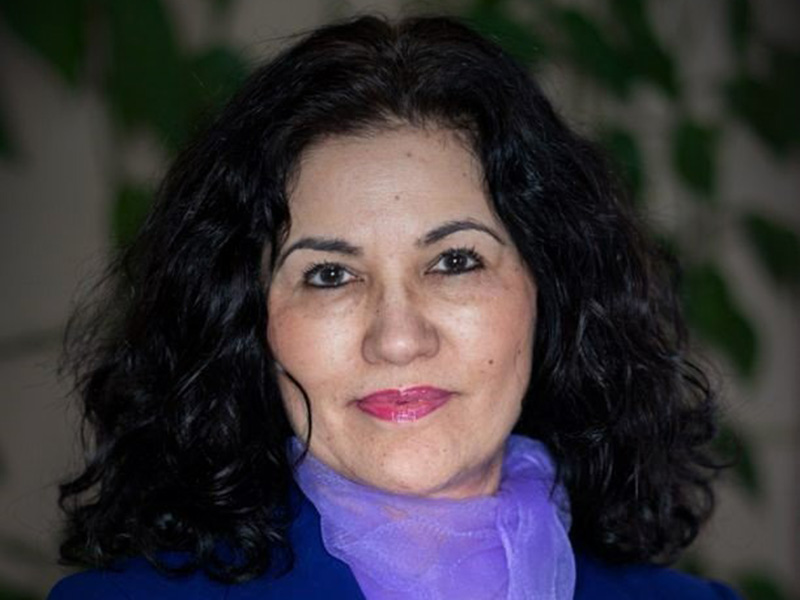
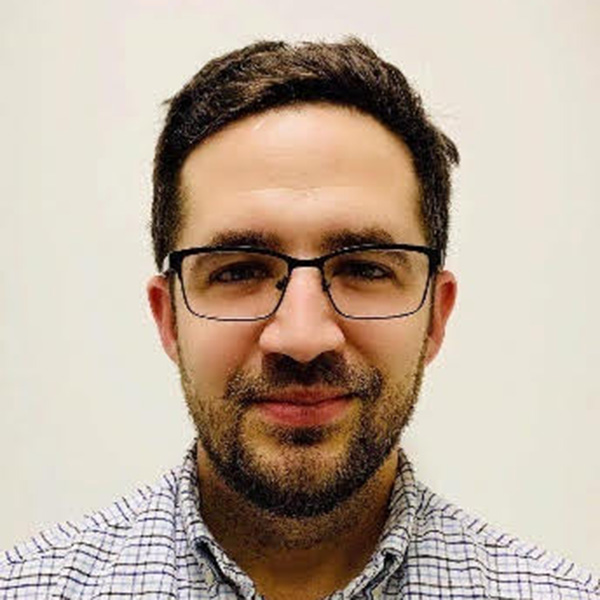
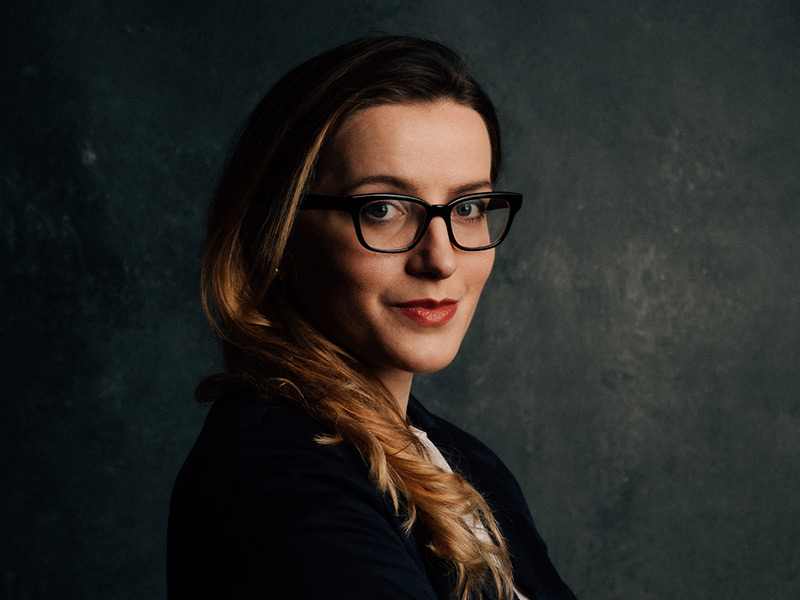
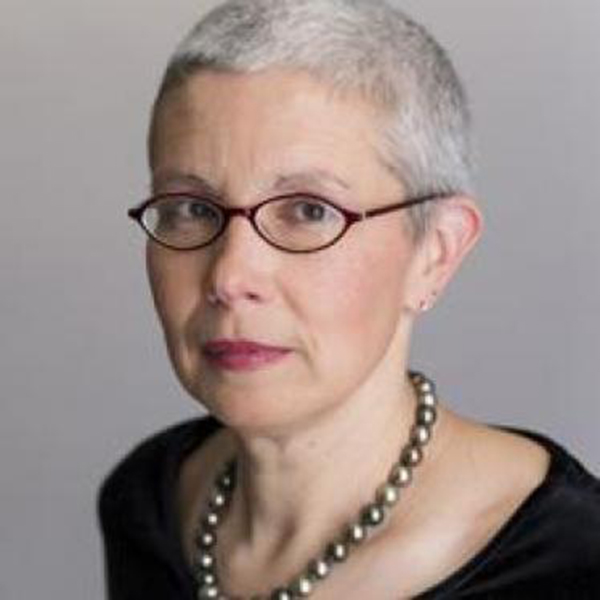

May 2021
The Humanitarian Crisis in Ethiopia’s Tigray Region
Hosted in collaboration with the Raoul Wallenberg Centre for Human Rights
The Raoul Wallenberg Centre for Human Rights, in partnership with Binghamton University’s Institute for Genocide and Mass Atrocity Prevention, will host a webinar on the current atrocities occurring in Ethiopia's Tigray Region. Join us on Thursday, May 13th at 10:00AM (EDT) for a first-hand account of the atrocities on the ground and to listen to our distinguished panelists' assessment of the crisis.
The Panelists:


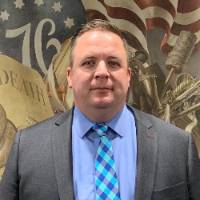
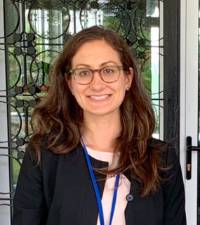
Moderated by:
Judith Abitan, Executive Director, Raoul Wallenberg Centre for Human Rights, and
Garnett Genuis, Member of Parliament, Canada
April 2021
Risks and Realities of Mass Atrocities facing Brazil’s Indigenous Peoples
Hosted in collaboration with the Cardozo Law Institute in Holocaust and Human Rights
Friday, April 16, 2021
In many parts of the world, particularly throughout the Americas, indigenous peoples have been and continue to be victims of targeted mass atrocity violence. The violence is not limited to colonial era genocides, forced displacements, religious conversions or so-called re-education programs. It has continued in the form of destruction and contamination of lands and waters in the name of economic development, as well as killings and disappearances of indigenous rights defenders.
Most recently it has manifested in disproportionate infection and death rates as part of the global COVID-19 pandemic. Nowhere is the persistent attack on indigenous rights and the need for more effective atrocity prevention work more apparent than in Brazil.
Join us in a conversation with four leading atrocity prevention actors from different spheres of Brazilian society who are working to protect indigenous peoples. This event is intentionally scheduled to occur just before the start of the 2021 United Nations Permanent Forum on Indigenous Issues.
Simultaneous Interpretation:
English - Portuguese
The Panelists:
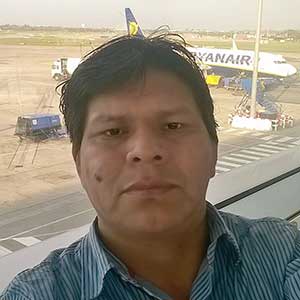


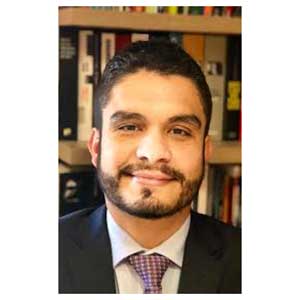
Moderated by:
Nadia Rubaii, co-director of the Institute for Genocide and Mass Atrocity Prevention (I-GMAP), Binghamton University
Jocelyn Getgen Kestenbaum, director of the Benjamin B. Ferencz Human Rights and Atrocity Prevention Clinic at Cardozo Law
Women of Color Leaders in Atrocity Prevention
Friday, April 9 from 2:00 - 3:30pm (EDT)
Join us as we celebrate the work of women of color in atrocity prevention and their visions for transformation. We will be joined by Francia Marquez, an internationally recognized Afro-Colombian environmental and racial justice leader and Miranda Sheffield, a community scholar and organizer from Pomona, California deeply rooted in Black feminist school of thought. They will share with us their justice work rooted in ancestral knowledge, community and electoral politics, and their strategies and vision for atrocity prevention both locally and transnationally.
The Panelists:
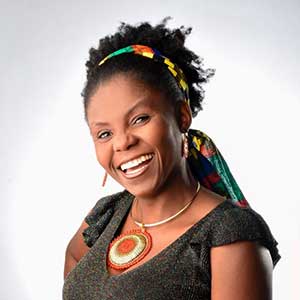
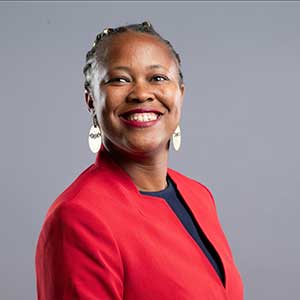
Moderated by:
Jenny Escobar, Charles E Scheidt postdoctoral fellow in Genocide and Mass Atrocity Prevention, Binghamton University
Nadia Rubaii, co-director, Institute for Genocide and Mass Atrocity Prevention (I-GMAP), professor, Public Administration, Binghamton University
March 2021
Stories of Loss and Reconciliation from the Israeli-Palestinian Conflict
The Institute for Genocide and Mass Atrocity Prevention (I-GMAP) proudly presents a week of visiting practitioners from the Parents Circle – Families Forum (PCFF). PCFF is a joint Israeli-Palestinian nonprofit organization of over 600 families, all of whom have lost an immediate family member to the ongoing conflict. The work of PCFF is grounded in an understanding that the process of reconciliation between nations is a prerequisite to achieving a sustainable peace.
Stories of Two Brothers
Restorative Justice (University Event)
Stories of Two Fathers
Stories of Two Mothers
A Conversation with Alice Wairimu Nderitu, the new UN Special Adviser on the Prevention of Genocide
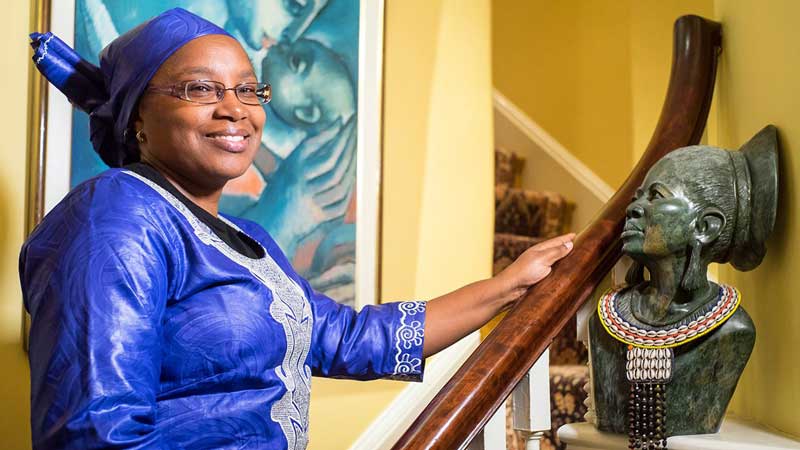
Alice Wairimu Nderitu of Kenya is the Special Adviser on the Prevention of Genocide. Ms. Nderitu is a recognized voice in the field of peacebuilding and violence prevention, having led as mediator and senior adviser in reconciliation processes among communities in Kenya, as well as in other African settings. She served as Commissioner of the National Cohesion and Integration Commission in Kenya, as well as Founding Member and co-Chair of the Uwiano Platform for Peace, a prevention agency linking early warning to early response. She is also the founder of Community Voices for Peace and Pluralism, a network of African women professionals preventing, transforming and solving violent, ethnic, racial and religious conflicts worldwide.
Ms. Nderitu’s national experience includes her tenure as Director of the Education for Social Justice programme at Fahamu, and as Head of the Human Rights Education and Capacity-Building Programme for the Kenya National Commission on Human Rights and its predecessor, the Standing Committee on Human Rights. Previously, she was Researcher and Administrator of the Kenya Prisons Service within the Ministry of Home Affairs. She is a member of the Kenya National Committee on the Prevention and Punishment of the Crime of Genocide, War Crimes, Crimes Against Humanity and All Forms of Discrimination, as well as the African Union Network of African Women in Conflict Prevention and Mediation (Fem-Wise), and the Women Waging Peace Network.
Ms. Nderitu holds a master’s degree in armed conflict and peace studies and a Bachelor of Arts, Literature and Philosophy from the University of Nairobi. She is a Transitional Justice Fellow at the Institute for Justice and Reconciliation in South Africa. Widely published, she is the recipient of awards recognizing her commitment to peaceful conflict resolution throughout Africa and her innovative approach to mediation.
February 2021
Prioritizing Children in Atrocity Prevention: Prevention Approaches in the Recruitment and Use of Children in Armed Conflict
In Collaboration with the Dallaire Institute for Children, Peace and Security
Preventing the recruitment and use of children by armed forces and armed groups, criminal networks and gangs, and reintegrating former child soldiers in the aftermath of armed conflict, are profound atrocity prevention challenges. In conflicts around the globe, children are used in a variety of roles from combatants, in support functions, as sexual slaves, or as intelligence gatherers and as a result face a devastating range of physical, psychological, and social vulnerabilities. Successful reintegration of children after such experiences is challenging and exacerbated by the instability of post-conflict and economic insecurity. This significantly contributes, in turn, to a heightened risk of further cycles of violence and the recurrence of atrocity crimes. Finding better ways to protect children from recruitment and use and to reintegrate those who have previously been recruited should be prioritized for achieving more peaceful societies.
What prevention approaches hold most promise for reducing the recruitment and use of children as soldiers? What do these prevention efforts in the context of armed forces and armed groups have in common with parallel efforts in the context of criminal networks and gangs? How can lessons learned from interstate or intrastate armed conflict inform efforts to reduce recruitment into organized criminal networks, and vice versa?
In this webinar, we are joined by our colleagues from the Dallaire Institute for Children, Peace and Security, as well as experts in the recruitment prevention and child protection fields both in the context of armed conflict and for criminal networks and gangs. Join us for a conversation on what they have learned through their experiences and their work.
Panelists:
- Steven Dudley is an investigative journalist, policy analyst and author. He is co-founder and co-director of InSight Crime, a think tank focused on organized crime in the Americas. He is the author of MS-13: The Making of America's Most Notorious Gang (2019).
- Achaleke Christian Leke is a civil society peacebuilding activist with special expertise in youth issues. He is National Coordinator of Local Youth Corner Cameroon.
- Cesar Rincon is a Colombian lawyer with 30 years of experience in criminal investigation, focusing on criminal organizations, human rights violations and government corruption. His experience includes 11 years as team coordinator at the United Nations International Commission Against Impunity in Guatemala (CICIG).
- Dr. Shelly Whitman is the executive director of the Dallaire Institute for Children, Peace and Security (Canada).
January 2021
Atrocity Prevention in the Biden-Harris Administration: a Two-Part Conversation
Part I: The United States and Global Atrocity Prevention in the Biden-Harris Administration: What to Expect, What to Hope For?
In Part I of our two-part series, we ask our guests to help us understand what we may expect, and what we could hope for, as the Biden-Harris administration responds to increased global atrocity risks and damaged international relationships. We will look specifically at the global challenges facing the new administration, and ways forward in reconstructing the country's global atrocity prevention mechanisms.
Panelists:
- Beth Van Schaack, Leah Kaplan Visiting Professor in Human Rights, Stanford Law School. Former Deputy to the Ambassador-at-Large for War Crimes Issues in the Office of Global Criminal Justice of the U.S. State Department
- Lawrence Woocher, Research Director for the Simon-Skjodt Center for the Prevention of Genocide at the United States Holocaust Memorial Museum
- Kate Ferguson, Co-Executive Director and Head of Research and Policy, Protection Approaches, UK.
- Jeffrey Sizemore, former Atrocity Prevention Lead at the Bureau of Democracy, Human Rights, and Labor, U.S. State Department
Part II: Prospects for a Domestic Atrocity Prevention Agenda in the Biden-Harris Administration
In Part II, we focus on prospects for effective responses to the legacies of mass atrocities within the United States itself, with particular attention to the ongoing violence experienced by Black and Indigenous peoples due to structural factors as well as the rise of white supremacist violence.
Wednesday January 27, 3:00 - 5:00PM EST
Panelists:
- Mark Charles, public speaker, consultant, co-auther of Unsettling Truths: The Ongoing, Dehumanizing Legacy of the Doctrine of Discovery, and 2020 independent candidate for US President.
- Charles L. Chavis, Jr, assistant professor of Conflict Resolution and History and Director for the John Mithell, Jr. Program for History, Justice, and Race at George Mason University, and national co-chair for the United States Truth, Racial Healing, and Transformation Movement.
- Shannon Foley Martinez, former white supremacist with our two decades of experience working to de-radicalize people who are still in the movement and to build resiliency at the individual and community level.
Moderator: Nadia Rubaii, Professor of Public Administration and Co-Director, I-GMAP
December 2020
Transitional Justice and Atrocity Prevention in Colombia
On December 16, 2020, we held an open coversation with four distinguished experts on the Final Accord and transitional justice in Colombia to help us understand the causes of ongoing atrocity violence in the country, and to help identify possible ways forward.
October 2020
The US Southern Border as an Atrocity Prevention Site
On October 14, 2020, we held our first webinar to discuss the US Southern Border as an Atrocity Prevention Site. Over 125 participants joined the session, what a great start to our series!
 I-GMAP is grateful for the generous support provided by the Charles E. Scheidt Family
Foundation.
I-GMAP is grateful for the generous support provided by the Charles E. Scheidt Family
Foundation.